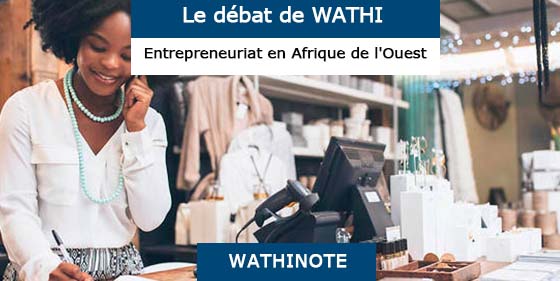

Author: Ms Elsie S. Kanza
Site of publication: Qatar Wise
Type of publication: Article
Date of publication: June 08th, 2018
We cannot address the unemployment challenge without freeing up the region’s talent. This means addressing education. As illustrated by the Arab Spring, being well-educated is no guarantee that one will find gainful employment. In the context of the Fourth Industrial Revolution, it is important to adjust current education solutions in order to prepare Africa’s youth for future jobs and life-long learning.
Entrepreneurship education has emerged as a viable solution to advance Africa’s inclusive growth and sustainable development agenda, particularly shifting mindsets. In this regard, it is encouraging to see increased innovations in the delivery of entrepreneurship education from the African Leadership Academy to Noa Ubongo to RLabs. Given that about 80 percent of Africa’s economy is informal, innovative solutions are critical. Furthermore, traditional and diverse African approaches to entrepreneurship education also need to be taken into account, such as the livestock economy.
Scale solutions to Local problems
Due to increased attention for entrepreneurship, there has been a dramatic increase in budding entrepreneurs and interventions to train entrepreneurs, such as incubators and start up competitions. Over the past few years, however, it has become clear that not all entrepreneurial solutions have the potential for high growth. Recent examples, like Twiga Foods in Kenya and Krystal Digital in Nigeria illustrate that it is large-scale problems that call for scalable entrepreneurial solutions. For example, Krystal Digital’s flagship service, MySkool Portal, a web-based application for School Information Management System founded in 2010 and designed for proper storage and documentation of school data, has been adopted by more than 50 Government owned high schools in Nigeria, and has more than 65,000 active student users.
Think Locally in Global Context
Entrepreneurs need to take into account their context and not just their solution to an entrepreneurial opportunity. As we now enter an era of “dominant technologies” such as the internet, mobile technology and social media, entrepreneurs tend to address issues that can be solved using these solutions. However, they should also pay attention to their context’s key social and economic issues. For example, financial technology can enable the processing of millions of transactions, but does not solve the issue of providing millions of people with three meals a day.
In order to lead Africa toward inclusive growth and sustainable development, responsible and responsive entrepreneurs need to nurture personally grounded exemplary values and ethical behaviour that contribute to healthy African communities, in addition to creating jobs and driving economic growth for the broader society
Scalable entrepreneurship needs to go beyond profits and consider the purpose behind the solution, and even more urgently in the poorest continent of the world. A win-win outcome is possible, as demonstrated, for example, by the winners of the World Economic Forum’s first and second editions of the search for Africa’s Top Tech Women Entrepreneurs and by the eleven winners from Kenya, Rwanda, South Africa, Tanzania and Uganda in 2016-2017, which included Musana Carts, which uses frugal innovation to develop environmentally friendly, solar-powered vending carts, and bimaAFYA, a mobile micro-health insurance targeting the low income and informal sector.
Mastering Informal as the new Normal
The predominant literature globally is dominated by books like Lean Startup and frameworks like business model canvases, which are tailored around structured approaches to building businesses. But in the African context, where the average entrepreneur is part of the hustle economy and is otherwise known as a “necessity entrepreneur”, the winning mindset is the one able to unite disparate elements to solve problems. This suggests experimenting with non-formal MBA approaches to entrepreneurial education, which also take into account the fact that only a tiny proportion of secondary school leavers have access to affordable tertiary education. In this regard, education technology is creating new pathways for learning.
Last but not least, in order to lead Africa toward inclusive growth and sustainable development, responsible and responsive entrepreneurs need to nurture personally grounded exemplary values and ethical behaviour that contribute to healthy African communities, in addition to creating jobs and driving economic growth for the broader society. As the Swahili proverb goes: “Asiyefunzwa na mamaye atafunzwa na ulimwengu” – Who is not educated by their mother shall be educated by the world. It takes a village to raise a child.
Les Wathinotes sont soit des résumés de publications sélectionnées par WATHI, conformes aux résumés originaux, soit des versions modifiées des résumés originaux, soit des extraits choisis par WATHI compte tenu de leur pertinence par rapport au thème du Débat. Lorsque les publications et leurs résumés ne sont disponibles qu’en français ou en anglais, WATHI se charge de la traduction des extraits choisis dans l’autre langue. Toutes les Wathinotes renvoient aux publications originales et intégrales qui ne sont pas hébergées par le site de WATHI, et sont destinées à promouvoir la lecture de ces documents, fruit du travail de recherche d’universitaires et d’experts.
The Wathinotes are either original abstracts of publications selected by WATHI, modified original summaries or publication quotes selected for their relevance for the theme of the Debate. When publications and abstracts are only available either in French or in English, the translation is done by WATHI. All the Wathinotes link to the original and integral publications that are not hosted on the WATHI website. WATHI participates to the promotion of these documents that have been written by university professors and experts.
